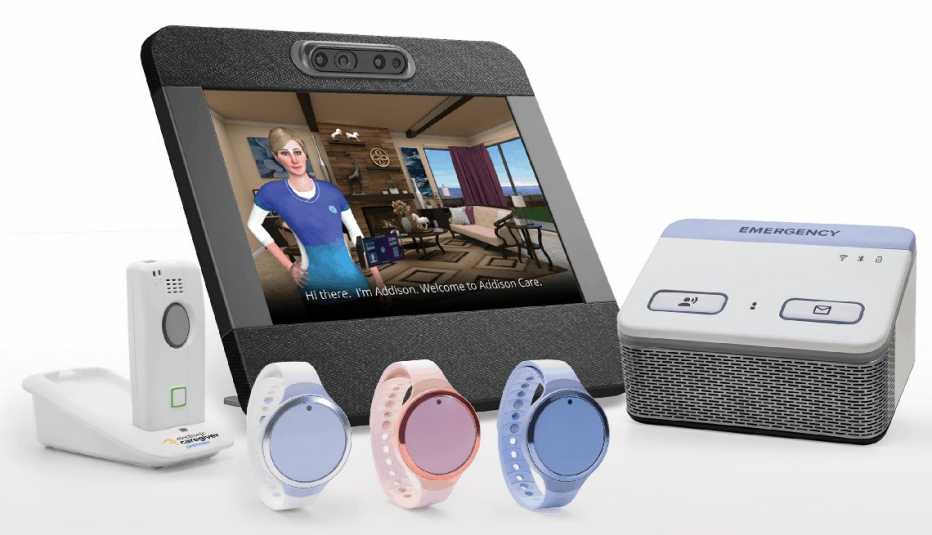AARP Hearing Center


When Ryan Herd's 73-year-old father had cancer and other health concerns a few years ago, Herd was worried but knew his dad wasn't likely to tell him about any problems that might arise.
"We're talking about the ‘greatest generation,’ " Herd says. “They believe you should never be a burden on anybody. So if you call and say, ‘How are you doing?’ they're always going to say that they're fine.”
This realization inspired him to start Caregiver Smart Solutions, which sells a system of small Peace of Mind sensors that can be placed in a loved one's home to track their habits and alert you if something is out of the ordinary.
"If they suddenly start getting up in the middle of the night to use the bathroom five times, that could be a sign of a urinary tract infection,” Herd says as an example. “So you might say, ‘Let's go down to the clinic and see what's going on.'"
Herd is exhibiting his sensor system at CES, the massive annual consumer electronics show this week in Las Vegas. His is just one of many tech companies here showcasing monitoring systems whose point is, as Herd puts it, “to answer that age-old question [about a loved one]: How are they doing?”
If adult children can be reassured that their parents are OK and immediately be alerted if they're not, they'll feel better about Mom and Dad living independently at home as they age, company representatives say. And that's something that the vast majority of people say they want to do.
Here's a look at the latest in home monitoring devices, some just introduced at CES.


Wearables
• Electronic Caregiver's Premier, what the company calls a “mobile security and care support system,” is a wrist device that includes activity monitoring; an emergency button; a GPS locator to make the system useful to more than homebound clients; and medication reminders.
It's linked to a Family Caregiver App to keep loved ones in the loop. The device is free with a monthly subscription that costs $40 to $60 a month, depending on the level of monitoring.
The Las Cruces, New Mexico-based company's president, Joseph Baffoe, says that unlike the 30-year-old, reactive medical alert systems ("I've fallen, and I can't get up!"), “this is predictive and preventive. That's the future of health care."
• CarePredict, a digital health company located in Menlo Park, California, and Fort Lauderdale, Florida, unveiled the CarePredict @Home Kit, which comes with a waterproof wrist device called the Tempo Series 3, two swappable batteries and four beacons along the same lines as the Peace of Mind sensors. The system picks up on small changes in a person's daily activity patterns by sensing movement and other factors, including the amount of humidity in the air — a lack of which might indicate that Mom or Dad hasn't showered lately and be a cause for concern.






























































More From AARP
Today's Smart Home Tech Can Help You Age in Place
Experts say new products can give you convenience, safetyKeep Older Adults at Top of Mind, AARP CEO Urges Tech Industry
50-plus Americans spent $140 billion on technology in 2018, AARP report finds